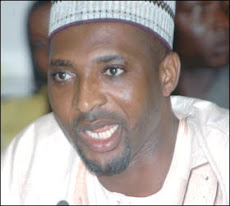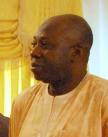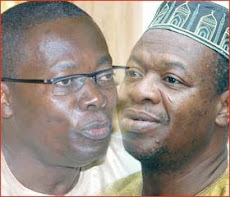Deputy Information Minister, Samuel Okudzeto Ablakwa has expressed surprise at the blatant self-identification with partisan politics by a minister of the Gospel of Christ, Rev. Samuel Asante-Antwi of the Methodist Church in Ghana.
Rev. Asante-Antwi on Saturday 'painted' himself in the colours of the New Patriotic Party while officiating at a thanksgiving service at the Ridge Church in Accra attended by leading members of the NPP, including its newly elected flag-bearer, Nana Addo Dankwa Akufo-Addo.
"Let us put in the appropriate measures that we are the alternative government. The key word is alternative", Rev Asante-Antwi urged the NPP, saying "We have forgotten a lot of people in this country…". He also urged the party to do more for the plight of the deprived and not to wait till it comes to power.
"You must continue to press them, (government) press them because there are still children going to school under sheds; they say that we didn't do well, what have they done about those things, what about the roads…?"
Read story here.
But Okudzeto says that is a sad indiscretion from the priest and a worrying deviation from a cardinal principle of the flock head who should position himself so as to embrace all who need his counsel and prayer.
The deputy minister said it is the norm for men of God to point out the government's shortcomings, especially so when its officials ask for their prayers for God's blessings, but indulging in partisan politics was a gospel 'nay'.
"If you listen to Rev. Asante-Antwi, he uses the expression 'we, we' so many times. He says that 'when we were in government the things that we did'; then he says that 'we need to show Ghanaians that we are the alternative government and that the NPP is a blessing to Ghana.
"Quite clearly he then wears political clothes. It is clear that he speaks as an activist of the NPP and engages in campaigning for Nana Addo.
"My understanding of the Great Commission if you look at the Matthew 28:19 where Christ said 'Go ye therefore and teach All Nations…you look at Mark 16:15 Christ said 'Go ye into all the world and preach the word to every creature; then you look at James 2:1-13, where we are admonished against favouritism and partiality once in the priesthood or in the work of God and if you also remember
Edmund Burke's statement that 'politics and the pulpit are terms that have little agreement', you come to a certain conclusion that it is not appropriate for men of God and for a high level person like the former president of the Methodist Church to descend into partisan politics because it will be our wish that whether you are NPP, NDC, CPP, PNC - once you are a Christian - you can go to men of God for prayers and rely on their direction and their support but when men of God like Rev. Asante-Antwi descend into partisan politics, I think that it is worrying for our country."
Okudzeto also condemned as unfortunate, a comment by Rev. Asante Antwi that Ghanaians were ungrateful for voting the NDC into power at the expense of the NPP.
"…it's clear that Rev. Asante-Antwi is a member of the campaign team of Nana Addo and NPP and so is speaking from that perspective", he said.
Okudzeto Ablakwa also told myjoyonline.com that the "Priesthood must be agents of uniting us as a nation and not dividing us because it is certain that in every congregation you are likely to meet members from varying political persuasions and certainly, we do not want to get to where Rwanda got to where thousands of Christians who ran to a priest to seek refuge at his parish were burnt to death."
Story by Myjoyonline.com/Ghana



















